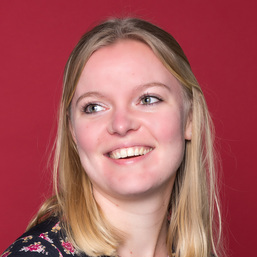
PhD students fear delays due to corona crisis
PhD students are facing serious delays in their research schedules, report loneliness and concern about career development. Folia reports.
One year ago, we all started working from home. This means PhD candidates also had to continue their research at home, with many reporting difficulties doing so. Elske Gerritsen, head of the Research Support Office of the Amsterdam Institute for Humanities Research (AIHR) knows many who are struggling to find time away from small children and other care tasks.
While millions of Dutch people have faced similar problems, PhD students have been further impacted by the closure of laboratories and archives, resulting in such significant delays in research that some candidates have had to change their entire research plan.
Research that requires test subjects for example, such as a behavioural experiments, is still not permitted. A PhD candidate who introduced himself to Folia as Steven, has had to adapt his research. He needs behavioural labs and MRI scanners. ‘Due to the lockdowns, both facilities were unavailable for a long time.’
Financial worries
At first, Steven was concerned that he would have to complete his research in his spare time. But now that he has the prospect of a possible position as a postdoc, he will have more (paid) time to complete overdue research projects.
Steven has the luxury that he already has authored multiple publications, he says. ‘But many of my colleagues don’t. It often happens that PhD students do not finish their research on time, and must finish writing their doctorate in their own time — and without a salary. The pandemic has made this situation worse,’ he says.
Publications
International science journals such as Nature and multiple UvA professors, including FMG dean, Agneta Fischer, also recognise this is a major problem.
‘In order to have a chance of a permanent position within a university or research institute, you first have to secure research grants,’ says Steven. ‘In order to have a chance at winning research grants, you don’t only need a good research proposal, but also a hell of a CV and publication list. The PhD trajectory is the best way for young researchers to build this up, but major delays like this are creating gaps in candidates’ publication lists and CVs that marginalise their chances to further their careers.’

Giuditta Beretta shares the same concerns. She started her PhD at the Institute for Biodiversity & Ecosystem Dynamics just before the corona crisis hit. ‘The pandemic means we have fewer results and therefore less to write about. We are afraid that we will not be able to compete with PhD students who could just keep working,’ she says.
Waiting for an extension
90 per cent of Giuditta’s project consists of experiments. ‘I could not go to the lab from March to May. Still not much was possible in the fall, and I only could do the essential experiments. I have now postponed all the extra things I want to test,’ she says.
‘Like many other PhDs, I have applied for an extension because I think I will be delayed by four months. But I know that it will be quite difficult to get that extension. After all, there is never enough money for every project. PhD students who complete their PhD research will be given priority.’
Extra time
There are also PhD candidates who are still on schedule. Some, such as history PhD student Matthijs Boom, have also been granted extra time. ‘I hope I can go back to the archives this summer. If not, the quality of my research will be severely limit.’
A number of laboratories have re-opened, such as the Van 't Hoff Institute for Molecular Sciences. 'But it remains difficult for theoretical chemists,' says Jan van Maarseveen, professor of bio-inspired organic synthesis. ‘They were always working at the UvA. Now they are not allowed to be at the UvA anymore, because they don’t need more than a desk with a computer. They really miss the social network.’
Loneliness
Many PhD students report missing their social network and of feelings of loneliness. ‘First-year PhD students from abroad can easily become socially isolated,’ says institute manager Marieke Kranenburg of the Korteweg-de Vries Institute for Mathematics. ‘They don’t know anyone yet, and their family is abroad.’
Beretta is Italian and is very concerned about her parents. ‘If I really wanted to, I could go home. But I’m afraid something will happen to them. That is why I celebrated Christmas and my birthday here in the Netherlands, and Easter too.’
.jpg)
Ben Meylahn has recently become a PhD candidate at the Korteweg-de Vries Institute for Mathematics. He comes from South Africa and was able to travel to the Netherlands via a detour. He is also worried about loneliness, but remains enthusiastic. ‘Although everything in Amsterdam is closed, it feels quite exciting to be here. Everything is new.’
He finds it difficult to work from home. ‘I’m very happy to have a roommate who is also a PhD. Then I see at least one more person a day. But I miss my dog, who is still in South Africa.’

